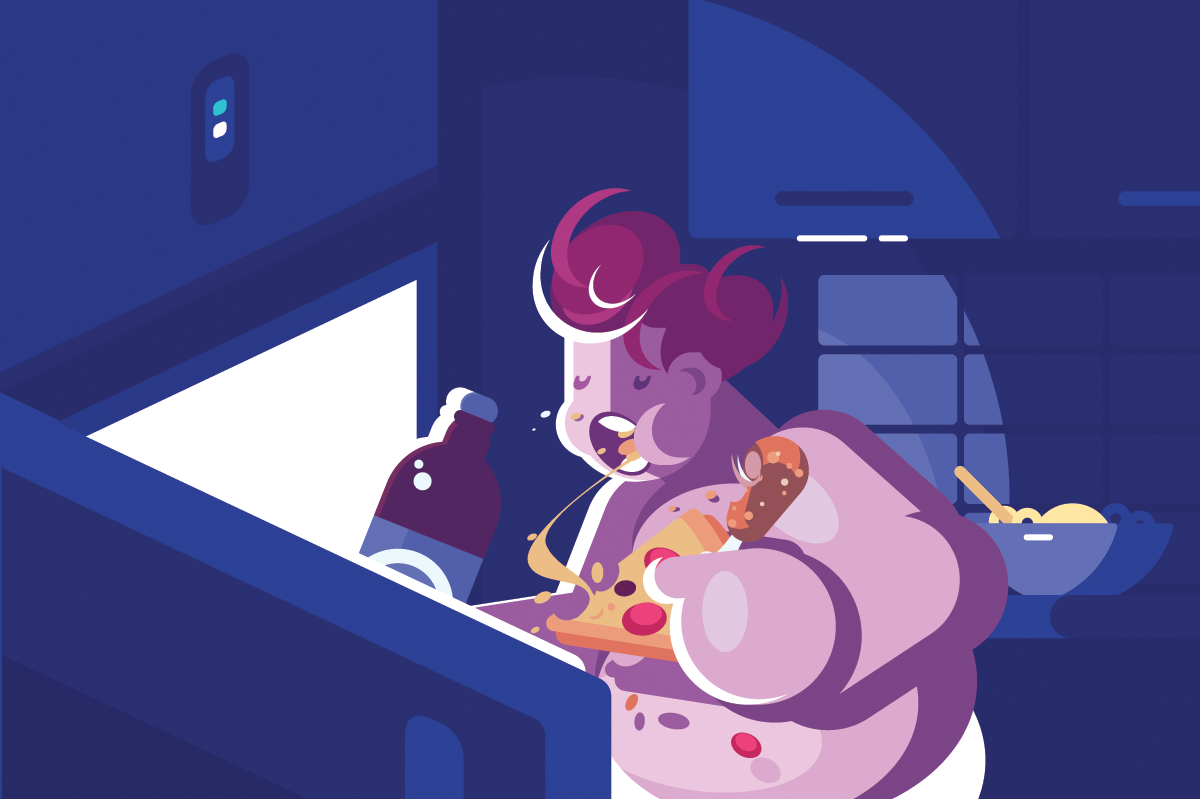Understanding Cheaters

There are two ways to avoid being with a cheater who breaks your heart. One way is to simply hope for the best. This might work, depending on your living situation, environment and circumstances. But if this is your preferred method, and it doesn’t work, you risk having your heart broken. Worse, you may become bitter and decide you’ll never risk love again. Needless to say, this isn’t ideal.
Understanding Comes First
We’ll attempt to find out why people cheat in the first place. We’ll see if we can determine the types of people (and their behaviors) that are more likely to cheat. You may find that when you are done reading this, you decide that your partner has a higher probability of cheating than you’d like. In that case, you’ve got some tough decisions.
Objective And Rational
We will be exploring this from a structural, logical and objective standpoint. It doesn’t do any good to say, “People cheat because they are heartless assholes!” That may make us feel good (temporarily) but essentially it’s an identity (bad label because of bad label) and doesn’t help us to understand the structure elements.
Look For Structural Similarities
We will attempt to find behaviors that are similar to cheating on relationship partners and see if we can find a common thread. Not in any one particular person, but in human behavior in general. Ultimately, we want to choose a partner who is least likely to cheat, and do things with our current partner that will decrease their likelihood of cheating.
Basics Of Human Action
Whenever we humans decide to do anything, the rewards, as we anticipate them, must be greater than the costs, as we anticipate them. This is easy to understand with financial purchases and conscious actions. If we buy a burger combo for ten bucks, we expect we’ll get ten bucks worth of food value (either by expectation or experience) or we’ll buy something else. If we put in any physical effort, (like climbing to the top of a mountain) we only do so because we expect the rewards will exceed the costs.
Subconscious Confusion

When our subconscious minds get involved, this muddies the water. We may have unconscious fears of snakes, for example, which may keep us from going mountain climbing. Because subconscious thoughts are things we don’t generally know about, this can make our decisions not make any sense. Many of us have feelings of “not deserving” something, which makes going after things we want (on one level) difficult, since we don’t feel we deserve it on another level.
Instinctive Confusion
Our instincts are much, much more powerful than our conscious brains. As far as the human primate goes, our instincts have been around a lot longer than our conscious thinking. We’ll look through some examples to see who generally wins the common battle of conscious mind vs. unconscious instinct.
Diet Examples
One of the easiest instinct to understand, that we can never handle, is our hunger. Way back in the day, food was very hard to get. On an instinctive level, there were only two rules. If it tastes good, eat it. If it tastes good, eat as much of it as you can. Food that didn’t taste good (tree bark, rotten meat, dirt) wasn’t healthy. There was a tight instinctive calibration between “food that tastes good” and “food that is healthy.”
Since food was also very hard to get in any quantity, those that had a strong instinct to eat as much as possible when it was present tended to survive more effectively (and pass on those, “eat-till-you’re-stuffed” genes) than those who didn’t.
Today’s Hunger Instinct
This is why the more wealthy any society gets, the higher percentage of people who are overweight. Having an instinct that says, “When in the presence of food that tastes good, eat as much as you can,” isn’t such a great idea when we’ve got delicious food an arm lengths away at all times.
Cheating On Diets

There’s no mystery why the same word, “cheat,” is used when we talk about cheating on diets, and cheating on our relationship partners. We promise ourselves to only eat certain foods. Either certain amounts, during certain times, or certain quantities. When we break this promise to ourselves, (which is, in a sense, a commitment to our food choices) we say we cheat on our diets. Our diet is a promise to ourselves to only eat certain foods. When we stray from this commitment, we cheat.
What Causes Us To Cheat On Diets?
It’s common to believe we cheat because of lack of willpower, but we’ll see it’s not the case. Maybe now you might believe it’s a lack of willpower, but let’s look through some imaginary scenarios and see if willpower is even a thing. If you’ve ever been on a diet that relied solely on willpower, it didn’t last long.
The Buffet Diet
Let’s imagine you decided to go on a calorie restricted diet of only 2100 calories a day. Three meals of 700 calories each. But each meal you ate at an all-you-can eat buffet. Let’s look at this all-you-can-eat-buffet diet under three different scenarios.
Solitary Dieting

Suppose you went to the buffet all by your lonesome. Further imagine that you were the only human on Earth that knew you were dieting. First let’s imagine the world as it is now, with more than sixty percent of people overweight. And let’s imagine that the only reason you were dieting were for personal reasons. Your relationships, your job, your friends, none would change whether you gained or lost fifty pounds. How well would you stay on that diet? Most of us wouldn’t last more than a few meals. Probably not even one.
Dieting With Social Pressure
Now let’s assume that only a few people on Earth were overweight, and they weren’t overweight by much. Obesity was unknown. Further imagine you, as you existed right now, were transported to an identical planet, with identical people, with only a couple differences. Everybody was healthy, and everybody also followed the “700 calorie per meal” diet, and the only restaurants were all-you-can-eat buffets. How difficult would it be to stick to your diet under these scenarios.
Social Pressure Is Powerful
Even if you were hungry, if you were in a large restaurant where nobody went back for seconds, it would be very hard to go back for seconds. Few people would be the only one to get up and get seconds, despite their hunger.
The Authority Diet
Imagine if you lived in world where being overweight was punishable by death or banishment. Every day you had to weigh yourself, and your weight was sent to a central authority. If you were outside of your limits, you would get a warning and a week. If a week went by and you were still outside your limits, you’d be given the death penalty, or banished forever to the forest. Suppose this was accepted by everybody. Suppose it was impossible to fake the weight. Would you have any trouble not overeating under these scenarios?
Authority Implies Social Proof
If you had such a huge amount of authority, it would be the same for everybody. This would mean that everybody was healthy. So not overeating would be supported (or controlled) by authority and by social proof. There would be no willpower required.
Willpower As An Internal Incentive

Think of all the above scenarios, and the current normal incentives. We might say that when it comes to dieting, with strong enough external incentives (social proof or authority) you don’t need any will power. If you’ve gone on the willpower diet and failed (like every other normal human) this is like saying that with only internal incentives, and very weak or even negative external incentives (being overweight is accepted, overeating is accepted and celebrated, etc.) internal incentives are not enough to alter human behavior.
External Vs. Internal Incentives And Instincts
When it comes to human survival instincts, they can be controlled or managed by external incentives, (at least in the case of dieting and eating) but with very weak or negative external incentives, no internal incentives (e.g. willpower) are sufficient.
With only your willpower, dieting is next to impossible. But with strong enough external incentives (social proof and authority) dieting is automatic and requires no willpower.
Food and Sex
As you’ve likely guessed, cheating on diets is similar to cheating on relationships. Eating is a survival trait, and sexual relationships are another survival trait. We can assume that the commitment to a certain sexual partner can be treated similarly to commitment to certain amount or type of food. Let’s explore this in detail.
Relationship Cheaters – External Factors
People do things for two reasons, positive and negative. And when it comes to human behavior, each of those can be separated into external and internal. First, let’s consider the external factors, in regards to cheating on a relationship, both positive and negative.
Religious Factors

It’s easily documented that couples that are active in any church will be less likely to cheat on one another, and less likely to divorce. Let’s see if we can guess why this is.
Religious – Social Proof
For one, if a couple are regular participants in a church, they will be seeing the same people every week. And if either one of them contemplates straying, there will be a strong fear of negative social proof. Imagine going to church every week with your partner. Then imagine going to church, sitting by yourself, and knowing that everybody is secretly judging you as a cheater.
Religious – Authority
The idea of God is the ultimate authority. God knows everything. God sees everything. Our imaginary couple who goes to church together every week likely believes that God is indeed watching their actions and knowing their thoughts. Any cheating thoughts would be hard to keep in mind for long under these circumstances.
Tight Community
Even if a couple is not particularly active in any church, a very tight community could provide the same types of external constraints. Imagine a small town where everybody knows everybody, and most people live there their entire lives. It’s easy to see how this might keep would-be cheaters from actually following through. Everybody in town would know. Their reputation would be forever altered.
Social Reference Group

Even modern couples living in big cities might be influenced by their social reference group. If both partners have extensive friends who have always been in successful monogamous relationships, then they would be less likely to cheat, all else equal. At the opposite end of the spectrum, relationships where both partners have social circles that have open or sporadic relationships, as well as parents, would be more likely to cheat, all else equal.
Internal Incentives
Internal incentives to cheat or not cheat can be strong, but as we saw with our dieting examples, if the external incentives are against you (everybody is doing the opposite of what you’d like to do) even the strongest internal incentives won’t hold up. If you are on a diet, and all your friends drag you to an all-you-can-eat buffet, and they are all obviously enjoying many return trips, it will be hard to maintain your 700 calorie per meal diet.
Asch Experiment
The Asch experiment (more here) showed how strongly we are influenced by a social reference group. When a group was purposely choosing the wrong answer, the actual test subject, in most cases, chose the wrong answer themselves, even though internally they knew it was the correct answer.
Negative Internal Incentives
When they are internal incentives to cheat (a desire to cheat) only a strong positive collection of incentives can overcome this. Nevertheless, we’ll explore what these might be.
Grass Is Always Greener Syndrome

The is based on the idea that we tend to overestimate the value of the unknown. Humans are overly optimistic. We are descended from people who kept nomadically wandering the Earth, certain that there was something better over the next set of hills, when experience told them otherwise. This bias can be deadly in a relationship gone stale.
If your relationship has slipped into the boring zone, eyes will wander. Consider this a law of human nature. When you are on a diet, it’s hard to walk past a bakery without letting your eyes (and nose) linger. When a relationship has gone stale, any positive interaction with the opposite sex will seem more valuable by comparison. If these interactions happen consistently (work relationships) the grass is always greener syndrome will kick in.
The Tipping Point
Humans will do something if they believe the benefit will be worth the costs. Let’s look at all of these when somebody “decides” to cheat. When it happens, they (combination of conscious and unconscious) comes to the conclusion that the benefits will outweigh the costs.
When the cheating act occurs, they likely don’t see it as a relationship ending event. In the moment, they likely see it as a one-time event. They give in to the ancient sexual drive which has created more than seven billion humans on Earth. Consider the uncomfortable truth that resisting a sexual opportunity, when one believes that it is a non-relationship ending, one-time event is just as hard as maintaining a 700 calorie meal at a buffet with close friends who are eagerly eating.
Slippery Slope

Once the cheating act is finished, it won’t be forgotten. It will be sought again by both parties. Relationship ending cheating tends to be many events, not just one. The more the cheaters cheat, the more they start to value the new “relationship” as a relationship that is comparable to the current relationship.
During the actual cheating, but before it is discovered (or before they believe it is discovered), the cheater actually has the best of both words, or they believe they do.They get to experience the thrill of a new sexual relationship, without having to go through the pain of ending the old relationship.
Serial Killers
Many movies contain the idea that serial killers make mistakes on purpose hoping that they get caught. The more they kill, the more they wish they could stop, but can’t. Consider it possible that cheaters cross a path where they hope to get caught, but still take pains to not get caught. Perhaps they are conflicted. Parts of them want to end the old relationship and start a new one. Parts of them want to keep cheating on the sly. Part of them might want to be “recaptured” by their old partner.
This is similar to somebody who really wishes they had enough willpower to diet and lose weight, but at the same time can’t stop eating.
Defense Against Cheating
Many conscious behaviors can build up resistance to cheating, much like we play tricks on ourselves to avoid overeating. We fill up with filling and low calorie foods. We drink plenty of water before meals. We only got shopping with a list, and never go shopping while hungry. There are also plenty of things to pre-frame any potential cheating temptation.
Give Them Something They Can’t Find Anywhere Else

Most people hook up, create a relationship and hope it runs on auto pilot. But consider taking steps to communicate with your partner that shows them (not tells them) that you care about them. You can learn more how to do that here. (link)
Leverage Cialdini
The longer the relationship lasts, the longer it will last. Two people who meet a work and cheat on their partners won’t think much of it if they are in their twenties. But two people in their forties or fifties who have never cheated before will likely feel terrible. This is due to the Cialdini law of commitment and consistency. (More here). We humans tend to do what we’ve always done.
Pre Screen For Non Cheating People
Finding out about your potential partners friends, family and relationship past will tell you a lot. If being in a monogamous relationship with a non-cheater is important, then you can do some pre-screening. If their parents or siblings are divorced, that would be a bad sign. If many of their friends are divorced, that would be a bad sign. See this as the same as screening for non-smokers, or potential partners with decent jobs and little debt.
Know Thyself

One thing that will help avoid cheaters is to understand why you get together with certain people. Ideally, we would create a set of criteria that reflect our core values, and then use those when searching for potential partners. The idea of getting together with whomever, and then hoping for the best is common, but it can also be dangerous. If you tend to always be cheated on, consider that you may have some unresolved issues that are reflected in how you choose your relationship partners.
While that is beyond the scope of this article, the people you choose to associate with are a large reflection of how you see yourself. If you truly believe that you are worthy of a loving partner who will treat you with respect, that is what you will find. Since our beliefs about ourselves tend to do a good job of hiding from us, they can be difficult to address.
Understand All Factors
If you have a partner you think might be cheating, or might potentially cheat, you have an idea of how to preframe that behavior. If you are seeking a loyal partner, you now have an idea of what to look for. As positive relationships are integral to a successful life, take plenty of time finding the right person. It could be the most important choice you make.
Learn More

Mind Persuasion has plenty of books and courses to help you get more out of life with less effort.
Mind Persuasion Books
Mind Persuasion Courses